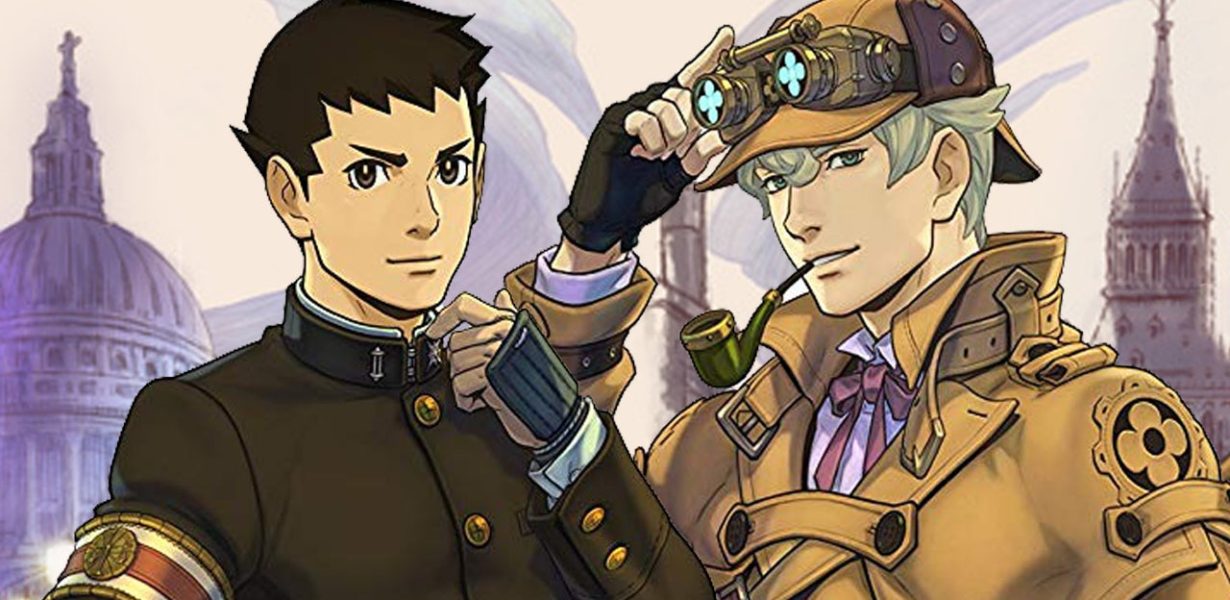Set in late 19th century Japan and Britain, The Great Ace Attorney Chronicles is so far removed from the main series in terms of time period that you’d be forgiven for excluding it from the series’ canon entirely. Along with introducing players to a whole new cast of characters, setting the games in a different time period also gives Capcom the creative leeway to experiment with new ideas and mechanics. And this is where Sherlock Holmes comes in. I mean, Herlock Sholmes.
While he is just a supporting character as Ryunosuke and Susato take the main stage, Herlock Sholmes plays an important part in all of your investigations throughout the course of Great Ace Attorney Chronicles. We often see him portrayed as a master of deduction in various other games and media, and that’s no different here. Except, while he may appear as an infallible galaxy brain-style thinker in other mediums, he’s been knocked down a peg or two in the Ace Attorney universe.
Whenever Herlock and Ryunosuke encounter a witness who’s clearly hiding something, the former immediately launches into a segment he calls the Logic and Reasoning Spectacular. During this comical segment, he flips his cap and snaps his fingers while presenting his theories and observations about said character, and draws conclusions from there.
They sound convincing at first, but as he continues to present his findings, it becomes increasingly obvious to Ryunosuke and the player that Herlock might actually be way off with his conclusions. It then falls to Ryunosuke to engage in a Dance of Deduction with him, whereby both men start twirling around and snapping their fingers to expose the witness in a stage spotlight whenever they spot an inconsistency.
The idea here is to bring Herlock back on track. His observations are mostly accurate, as he’s able to tell when a witness is actively hiding something, but he often misses the mark when actually theorizing about what it is they’re hiding. Ryunosuke is then able to refine Herlock’s deductions and allow him to come to a more accurate conclusion. Not only is the Dance of Deduction hilarious and corny in the best way, it also presents the mythical figure of Sherlock Holmes in a more humanizing and lighthearted manner.
In The Great Ace Attorney Chronicles, Herlock still embodies some of his classic characteristics as perpetuated by his myth: he’s charismatic, occasionally pompous, and prone to making split-second judgments and deductions about people. The Ace Attorney version of him just happens to be a lot goofier and more melodramatic than what we might be used to.
At the end of the day, though, Herlock’s goofy nature is there to serve the game’s narrative arc and help to balance out the more grounded protagonist in Ryunosuke. Both characters function as two sides of a coin, and allow each other to succeed in their respective fields.
After seeing both games through to the end, I’ve found myself increasingly attached to Herlock. Despite his annoying smarminess at times, this version of the renowned detective has been a real breath of fresh air and a nice twist to the Ace Attorney structure. In a series where our protagonist often finds himself surrounded by incompetent police officers and detectives, Herlock isn’t perfect, but he sure as hell is a lot more stylish and charismatic than his predecessors.


There are no comments.